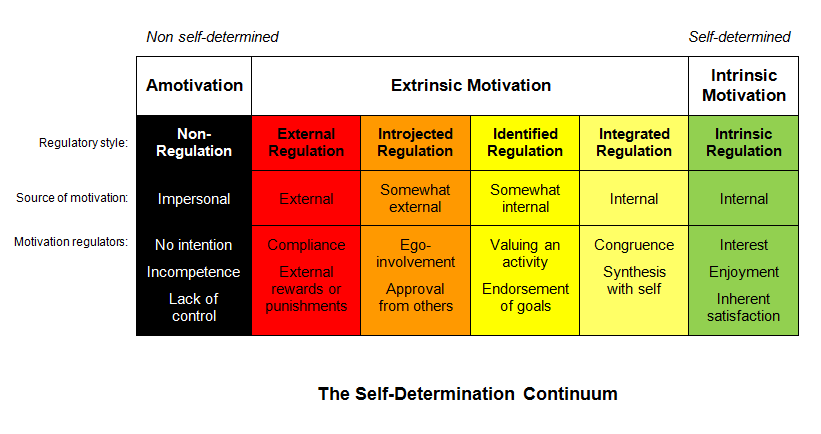In the last informational post, we briefly mentioned that achievement goal theory branches into two predominant approaches: expectancy-value theory and self-efficacy theory. Expectancy-value theory states that individuals are more likely to engage in a particular achievement task when they expect to do well and when the task has some value to them. (This is the scale I am using personally to measure my variables for achievement motivation.) Self-efficacy theory, on the other hand, emphasizes the importance of individual judgments of capability.
Today, I desire to provide a short look into self-efficacy theory and relate it to academic motivation.
Besides cognitive factors, various motivational factors were have been found to be important predictors of first-year academic achievement and study persistence. "In a meta-analysis of psychological correlates of university student's academic performance in general, performance self-efficacy was found to be the strongest correlate, followed by high-school GPA and ACT scores" (Richardson et al 2012).Self-efficacy is similar to psychological self-concept which alongside autonomous motivation has been repeatedly associated with academic achievement.
Self-efficacy is defined as "People's judgements of their capabilities to organize and execute courses of actions required to attain designated types of performances" (Bandura, 1986, p.391). Much research has clarified the role of self-efficacy as a mechanism underlying behavioral change, maintenance, and generalization. For example, there is evidence that self-efficacy predicts such diverse outcomes as academic achievements, social skills, smoking cessation, pain tolerance, athletic performances, and career choices (Bandura, 1986). Individuals who feel efficacious are hypothesized to work harder and persist longer when difficulties than those who doubt their capabilities.
"Self-efficacy theory postulates that people acquire information to appraise efficacy from their performance accomplishments, vicarious experiences, forms of persuasion, and physiological indexes" (Schunk 2014). For example, students can acquire positive persuasory feedback which enhances self-efficacy (e.g. "You can do this"), but this feedback will be temporary if subsequent efforts turn out poorly. Students also derive efficacy information from physiological indexes (e.g. heart rate and sweating). Bodily symptoms signalizing anxiety might be interpreted to indicate a lack of skills. Schunk (1989) discussed how self-efficacy might operate during academic learning.
At the start of an activity, students differ in their beliefs about their capabilities to acquire knowledge, perform skills, master the material so forth. Initial self-efficacy served as a function of aptitude and prior experiences. Such personal factors such as goal setting and information processing, along with situational factors affects students while they are working. Motivation is enhanced when students perceive they are making progress in learning. In turn, as students work on tasks and become more skillful, they maintain a sense of self-efficacy for performing well.Expectancy-value theory stresses the notion that behavior is a joint function of people's expectations of a particular outcome of performing a behavior and the extent to which they value those outcomes. (Eccles,1983). However, Self-efficacy theory differs from expectancy-value formulations in its emphasis on student's beliefs concerning their capabilities to learn and effectively employ the skills and knowledge necessary to attain the valued outcomes.
According to multiple assessments and statistical tests, self-efficacy predicts motivational outcomes fairly well. Significant and positive correlations (rs = .38 to .42) have been obtained between self-efficacy for learning assessed before receiving instruction and subsequent rate of problem-solving (Schunk & Hanson, 1985). Shell, Murphy, and Bruning (1989) found that self-efficacy accounted for significant portions of the variability in both reading and writing achievement. Collins (1982) demonstrated that self-efficacy predicts motivation and achievement across levels of student ability. Children identified as high, average, or low in mathematical ability, were classified as high or low in efficacy for solving word problems. In one test, children who were given some problems to solve (some were insolvable) and could rework any they missed. Low- and average-ability students with high efficacy worked on insolvable problems longer than did low-efficacy students. Finally, regardless of ability, students with higher efficacy reworked more problems than did students with lower efficacy.
All in all, self-efficacy is another model of achievement motivation that is being extensively evaluated and tested alongside achievement goal theory as a predictor of individual success.



